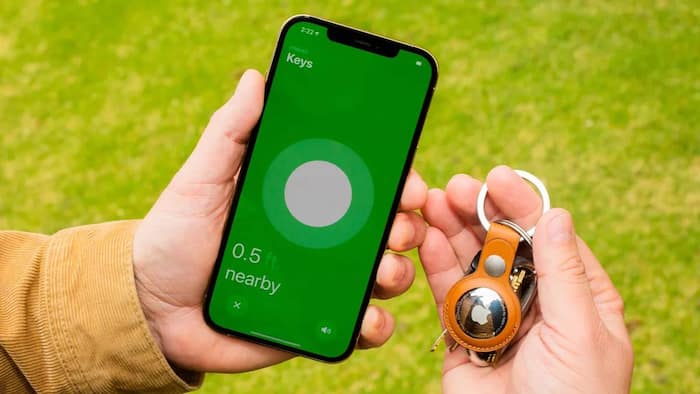
Written By Om Gupta
Published By: Om Gupta | Published: Dec 23, 2023, 06:40 PM (IST)

Upon the introduction of Apple’s AirTags, it became clear that the Bluetooth tracker technology used by all major smart tags had a significant issue. While products like AirTags are designed to protect personal belongings, they can be exploited as tracking devices, potentially hidden in an unsuspecting individual’s bag or vehicle. Apple promptly responded with a method to identify unfamiliar AirTags moving without their owners nearby, but replicating this on Android or for third-party trackers was not straightforward. Also Read: iPhone 17 Could Get A Price Hike In India Soon; Here’s What We Know So Far
During Google I/O 2023, Google revealed its collaboration with Apple to curb unwanted tracking through Bluetooth tags, irrespective of their manufacturer. The goal is to establish a universal industry standard adopted by both Android and iOS. This technology could enable the detection of unwanted trackers using built-in tools, eliminating the need for additional app downloads. Other tracker manufacturers, such as Samsung, have also joined the initiative. Also Read: iPhone Air Becomes More Affordable With Up To Rs 13,000 Off In Black Friday Sale
However, progress has been somewhat slow since then. Google took the lead and introduced a preliminary method to detect unwanted trackers, but it relies on a proprietary solution rather than the industry-wide standard that Apple anticipates. The wait may not be much longer, as Mishaal Rahman has discovered that the first version of the “Detecting Unwanted Location Trackers” specification is now accessible on the Internet Engineering Task Force (IETF). Also Read: How To Use The New “Power Saving” Mode On Google Maps
This is the specification that Apple has been awaiting, suggesting that the company is likely preparing to launch its own version of a platform-neutral unwanted tracker detection system. Meanwhile, Google is waiting for Apple to take this step before launching an enhanced version of its Find My Device network on Android. This updated version is expected to be comparable to Apple’s Find My network (without “Device” in the name), potentially enabling users to locate their phone even when it’s switched off.
As the year draws to a close, it’s likely that unwanted tracking detection on iOS and the advanced Find My Device network on Android will only be introduced in 2024. The implementation of more robust solutions for both these features will significantly enhance privacy and theft protection in the future.